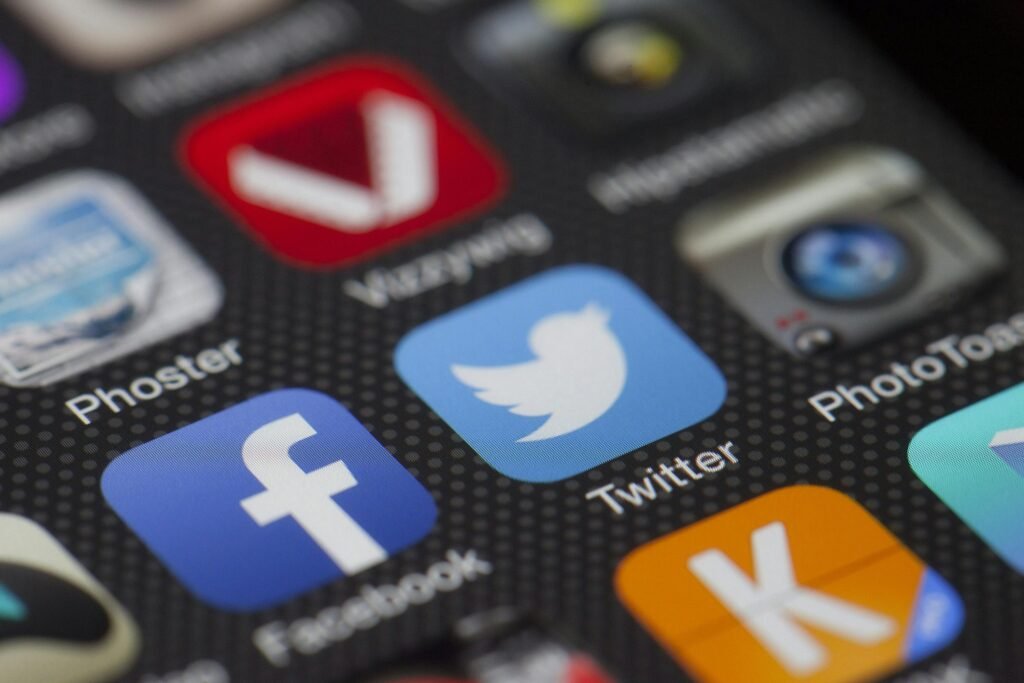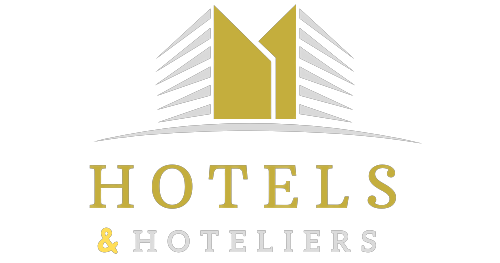Essential Marketing Tools For Growing Your Hotel’s Online Presence
In today’s post, we will outline some of the essential marketing tools within the Marketing Department that help strengthen your hotel’s online presence. Let’s have a look into the below points we will go through:
- Hotel’s Website: Your hotel’s website is your digital foundation. Not only does it serve as the place where guests can book their stay, but when optimized correctly it has the power to bring in new guests and invite interested travelers to book your hotel when they may be considering multiple options.
- Hotel Photography: Hotel imagery is the #1 feature customers engage with on property websites. It differentiates your property from the competition, drives higher conversion and revenue, and supports upselling for a higher ADR.
- Major Online Listings: Third-party listings play a key role in your hotel’s online presence and rankings. It is important to ensure that every key listing – including OTAs like TripAdvisor and sites synced to Yext (Google, Bing, Yelp, etc.) – contains the most accurate information and images for your property.
- Reputation Management: Reputation management in the hospitality industry is the process of receiving and responding to guest reviews, also known as User Generated Content (UGC). It’s important to respond to every review across all platforms, as 97% of consumers read review responses.
- Influencer Marketing Platforms: Collaborate with influencers or travel bloggers to promote your hotel to their followers. Platforms like AspireIQ, Influence.co, or Tribe Dynamics help you find and connect with relevant influencers in your niche.
- Email Marketing Platforms: Build relationships with past and potential guests through email marketing campaigns. Platforms like Mailchimp, Constant Contact, or Sendinblue offer features for creating visually appealing emails, segmenting your audience, and tracking performance.
- Social Media: Promoting your hotel’s online presence through social media involves a strategic approach to attract more visitors, increase engagement, and ultimately drive bookings.
Essential Marketing Tools:
Hotel’s Website
When it comes to the essential marketing tools of course your website is the first point. Your hotel’s website is part of a domain and serves as your digital foundation. It is the primary place online where a guest can learn about your hotel and book their stay. On average, more than 1/3 of a hotel’s reservations will come through its property website. You can use a CMS like WordPress, Drupal, or Joomla to manage your website’s content easily. These platforms offer flexibility and customization options to showcase your hotel’s amenities and promotions effectively.
Why is important?
Not only does your website serve as the place where guests can book their stay, but when optimized correctly it has the power to bring in new guests and invite interested travelers to book your hotel when they may be considering multiple options. The two most important items are content and images. Accurate content and inviting imagery bring your digital presence to life and are crucial to helping guests understand why they should book with you.
Hotel Photography
Hotel photography is another essential marketing tool for growing your hotel’s online presence. Images of your hotel are used in many different ways: your property website, marketing collateral, online listings, display advertising, sales material, and more. High-quality image files are stored by the hotel and distributed to all the important areas. A comprehensive photoshoot of each new and converting hotel must be completed according to Brand Standards in the period after opening/conversion.
Hotel imagery is the #1 feature customers engage with on property sites. It differentiates your property from the competition, drives higher conversion and revenue, and supports upselling for a higher ADR.
Major Online Listings
Third-Party listings are external listings that have a significant impact on your hotel’s online presence. These listings include OTAs, such as Booking.com and Expedia, TripAdvisor, and key sites actively managed through Yext, such as Google, Bing, Yelp, etc.)
It’s important for every hotel to optimize and review the accuracy of these listings as soon as possible to ensure online content is complete and consistent. MEC helps with listing setup, but primary OTA support is provided by Revenue Management’s Distribution Ops team.
Why is important?
Ensuring that your hotel has consistent information across Third Party sites is an integral component in the ramp-up process. Hotels will need to focus on updating and monitoring existing listings.
Name, Address, Phone (NAP) audits are completed for all conversion properties, and hotels are encouraged to update the previous hotel listings as quickly as possible. Having consistent NAP (and URLs – also known as NAP-U) across online listings will help the hotel achieve better positioning online. Hotels should also audit their amenities and attributes to make sure they are correct and complete.
Reputation Management
Reputation Management in the hospitality industry is the process of receiving and responding to guest reviews on sites like TripAdvisor, Google, and many others. It’s important to remember that potential customers are influenced by both the review and the response.
Keep in mind that 81% of travelers rely on review sites to determine value and guest experience. Ensuring a prompt response to online reviews is imperative in reinforcing trust. Responding to reviews also offers the hotel a unique opportunity to shape the conversation on key areas of focus for the hotel, such as cleanliness and safety. Reputation Management will help you track guest preferences, send personalized messages, and gather feedback to improve service quality.
Influencer Marketing Platforms
Influencer marketing platforms play a crucial role in connecting brands with influencers, facilitating collaborations, and streamlining the entire influencer marketing process. Here are several popular influencer marketing essential tools you might need to apply to your hote:
- Influencity: Influencity is a influencer marketing platform that offers features like influencer discovery, campaign management, analytics, and reporting. It allows brands to find influencers across various social media platforms and manage their campaigns efficiently.
- AspireIQ (formerly Revfluence): AspireIQ provides a platform for brands to discover influencers, manage campaigns, track results, and analyze data. It emphasizes authenticity and offers tools for building long-term relationships with influencers.
- Traackr: Traackr is an influencer marketing platform that focuses on identifying influencers who are the best fit for a brand’s specific goals and target audience. It offers advanced analytics and measurement tools to track the impact of influencer campaigns.
- IZEA: IZEA is a platform that connects brands with influencers for sponsored content opportunities. It offers a variety of influencer marketing services, including influencer discovery, campaign management, and content creation.
- TapInfluence (now known as Impact): TapInfluence is a platform that helps brands find influencers, manage campaigns, and measure results. It offers features like influencer discovery, content collaboration, and performance tracking.
- Upfluence: Upfluence is an influencer marketing platform that provides tools for influencer discovery, relationship management, and campaign tracking. It offers a database of influencers across various social media platforms and industries.
- Grin: Grin is an influencer marketing platform that focuses on helping brands build and manage relationships with influencers. It offers features like influencer discovery, campaign management, and performance tracking.
- Socialbakers: Socialbakers is a social media marketing platform that includes influencer marketing features. It provides tools for influencer discovery, campaign management, and performance analytics.
- HYPR: HYPR is an influencer marketing platform that emphasizes data-driven influencer discovery and campaign optimization. It offers a database of influencers with detailed audience demographics and performance metrics.
- Julius: Julius is a platform that helps brands find influencers, manage campaigns, and measure results. It offers advanced search filters and analytics tools to identify the most relevant influencers for a brand’s goals.
Email Marketing Platforms
Another essential marketing tool for hotels is email marketing which is a powerful tool for engaging with your guests. Here are several email marketing platforms that can help you to promote your hotel and keep your audience informed:
- Mailchimp: Mailchimp is one of the most popular email marketing platforms, offering a user-friendly interface, customizable templates, and advanced analytics. It’s suitable for hotels of all sizes and provides features for creating targeted campaigns, automated workflows, and segmenting your audience based on their preferences and behavior.
- Constant Contact: Constant Contact is another widely used email marketing platform that offers a range of features tailored for small businesses, including hotels. It provides customizable templates, list management tools, and analytics to track the performance of your email campaigns.
- Campaign Monitor: Campaign Monitor is known for its drag-and-drop email builder, which makes it easy to create visually appealing email campaigns. It offers features like personalization, automation, and segmentation to help hotels deliver relevant content to their subscribers.
- GetResponse: GetResponse is an all-in-one marketing platform that includes email marketing, automation, landing pages, and more. It offers features such as autoresponders, A/B testing, and advanced segmentation to help hotels optimize their email campaigns for maximum impact.
- AWeber: AWeber is a popular email marketing platform that provides tools for creating professional-looking emails, managing subscriber lists, and tracking campaign performance. It’s suitable for hotels looking to build relationships with their guests through targeted email communication.
- Sendinblue: Sendinblue offers email marketing, SMS marketing, and transactional email services on one platform. It provides features like marketing automation, segmentation, and personalized content to help hotels deliver relevant messages to their audience.
- HubSpot: HubSpot offers a comprehensive marketing platform that includes email marketing, CRM, automation, and more. It’s suitable for hotels looking for an integrated solution to manage their marketing efforts and track interactions with guests throughout the customer journey.
- VerticalResponse: VerticalResponse provides email marketing software designed for small businesses, including hotels. It offers customizable templates, list management tools, and reporting features to help hotels create and track the performance of their email campaigns.
- Benchmark Email: Benchmark Email offers a range of features, including customizable templates, automation, and analytics, to help hotels create engaging email campaigns. It’s suitable for hotels looking to increase bookings and build relationships with their guests through targeted communication.
- ActiveCampaign: ActiveCampaign is a marketing automation platform that includes email marketing, CRM, and automation tools. It’s suitable for hotels looking to create personalized email campaigns, automate follow-up communications, and track guest interactions over time.
Social Media
Firstly, choose specific goals for your social media strategy, such as increasing website traffic, generating leads, boosting brand awareness, or driving direct bookings. Your goals will guide your content strategy and performance measurement.

Secondly, understand your target audience demographics, interests, and behaviors to tailor your content and messaging accordingly. Consider factors such as age, location, travel preferences, and purchasing habits. Than select social media platforms that align with your target audience and business objectives. For hotels, platforms like Instagram, Facebook, Twitter, and Pinterest are often effective for showcasing visual content and engaging with potential guests.
Make sure your social media profiles are complete, consistent, and visually appealing. Use high-quality images and videos that showcase your hotel’s amenities, rooms, dining options, and nearby attractions. Include a clear call-to-action (CTA) and a link to your website in your bio.
Don’t forget to engage with your audience by responding to comments, messages, and reviews promptly. Encourage conversations, ask questions, and run polls to encourage interaction. Show appreciation for user-generated content by reposting and acknowledging contributors.
We hope that these essential marketing tools were helpful to guide you in the right direction in the hospitality industry.
Images on the article are not copyrighted – PIXABAY (Free to use under Pixabay Content License)


